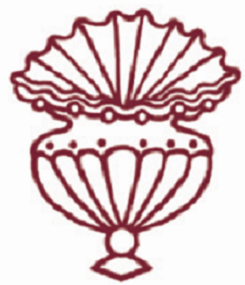Religious Studies at the Hebrew University of Jerusalem
From its founding in 1925, the Hebrew University of Jerusalem has stood at the forefront of the academic investigation of religions from the philological, intellectual, historical, and sociological perspectives. Today, the study of religious traditions is based mainly in the Department of Comparative Religion, the Department of Jewish Thought, and the Institute of Asian and African Studies, all within the Faculty of Humanities. Many scholars, representing a broad range of linguistic and disciplinary expertise, are dedicated to the attaining of the highest level of research and instruction in Judaism, Christianity, Islam, Hinduism and Buddhism, and their interrelationships.
While both Jewish and Islamic Studies are represented in the various departments and research centers in the Institutes of Jewish and Asian and African Studies, and have thus enjoyed outstanding resources, the same cannot be said for the study of Christianity. Despite its being the only faith actually born in Jerusalem, and despite the centrality of Christian thought and the Church to the study of the history and culture of the Western world, Christianity has been less intensively studied and researched at the Hebrew University than the other two monotheistic religions. Today, the presence of a new generation of Israeli scholars whose fields of interest range widely in social and intellectual history, literature, archaeology and art renders possible the development of significantly increased research and teaching in the fields of the New Testament, Patristics, Syriac and Byzantine Christianity, as well as modern form of Christianity.
In 1956 a graduate religious studies program was established in the Department of Comparative Religion. But it is only in 2008 that an undergraduate program in religious studies, including Christianity, was founded, and it attracts many students. In addition, the graduate program in the Hebrew University’s Rothberg International School, which offers an M.A. program in Religious Studies, taught in English, each year draws hundreds of students from different religious backgrounds, and from various countries, for study and research. In line with the Hebrew University’s ongoing commitment to the highest academic standards, these students attend a wide variety of classes conducted by faculty members and visiting scholars. Their research reflects a broad scope of topics such as the New Testament and its Jewish Roots, Patristic and Eastern Christianity, Christian Biblical Hermeneutics, Medieval mysticism and theology, and contemporary theology.
The Center for the Study of Christianity
The Center for the Study of Christianity was established in 1999, thanks to the generosity of Hubert and Aldegonde Brenninkmeijer-Werhahn, and dedicated in March 2000, just ahead of John Paul II's historic visit to Israel. Since its foundation, the Center has been connected with the Department of Comparative Religion. The Hebrew University is a secular institution, and the Center has no religious dimension or theological mission, overt or hidden. It is the only institution of its kind in Israel. We think it is also the only Center dedicated to the study of Christianity in a non-Christian majority country.
The Center aims to stimulate and coordinate research projects, conferences and workshops, at both the national and international levels, graduate students’ workshops, and lectures by distinguished Visiting Professors. In addition, the Center offers research grants for graduate students at the Hebrew University. The Center intends to encourage, in particular, research and study of the New Testament and its Jewish roots, the relationship, over the years, of Jews and Christians, the history of Christianity in the Holy Land, and Eastern Christianity, and the study of contemporary Christian theology, as well as research on contemporary Christian communities in the Holy Land.
Among the central activities of the Center at the international level is its cooperation with the Pontifical Gregorian University in Rome through the Cardinal Bea Centre for Judaic Studies. In accordance with the wishes of those who established this academic cooperation, each year there are two Brenninkmeijer-Werhahn Visiting Professors; the one in Jerusalem will focus on the study of Christianity; the one in Rome, on Judaic Studies. These visitors are drawn from the active teaching staff of the partner university or from elsewhere, with the agreement of the directors of the centers and in cooperation with the advisory Academic Committee. A one-semester Brenninkmeijer-Werhahn scholarship is awarded each year to one or two graduate students from each of the partner institutions. The Center also awards two postdoctoral fellowships each year to leading young scholars from across world, who have demonstrated excellence in scholarship on the history of Christianity. Many of these fellows have gone on to land positions at leading universities in Europe and North America.
The Center, in addition, cultivates close interaction with other research centers in the Hebrew University, such as the Orion Center for the Study of the Dead Sea Scrolls and the Nehemia Levtzion Center for Islamic Studies, resulting in joint seminars, workshops and international symposia. The Center also enjoys scholarly relationships with a number of other Jerusalem institutions, such as the Van Leer Institute, the École Biblique et Archéologique Française, the Franciscan Studium Biblicum, the Tantur Ecumenical Institute for Theological Research and the Pontifical Biblical Institute.
Over the years, intensive individual and team efforts, carried out under the direction of Prof. Guy G. Stroumsa (founding director), Dr. David Satran, Prof. Brouria Bitton-Ashkelony and Prof. Oded Irshai, have yielded a series of academic conferences and workshops on such central themes as Comparative Aspects of Communal and Religious Leadership, the New Testament and its Jewish Background, the History of Christianity in the Holy Land, Aspects of Christian Spirituality and Thought, Patristic Studies, Cultural and Religious Tolerance and Pluralism, and Contemporary Christian Communities in the Holy Land.

